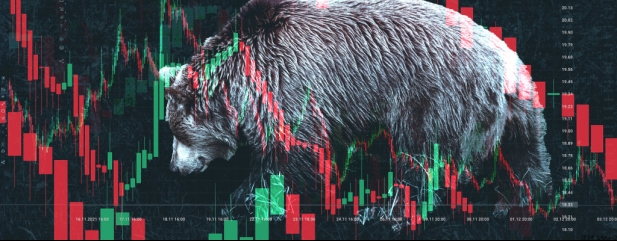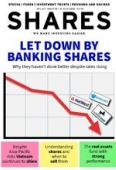Archived article
Please note that tax, investment, pension and ISA rules can change and the information and any views contained in this article may now be inaccurate.
Wealth preserver Ruffer warns bear market is ‘only mid grizzle’

Capital preservation trust Ruffer’s (RICA) portfolio is the most defensively positioned it has been since 2003, with its managers believing the worst is not yet over for stocks and other risk assets.
Co-manager Duncan MacInnes told the AJ Bell Money & Markets Podcast that ‘investors under the age of 60 have been conditioned to buy the dip’, since central bank easing has ‘always been just around the corner and market recoveries have been swift and steep’.
Yet a look further back in history shows the pattern that many bear markets take ‘is a steep drop, like we’ve just had, but followed by a more prolonged grind lower over a number of years’, warns MacInnes.
As outlined in Ruffer’s year-end review, the last few months of the year to June 2022 saw portfolio risk reduced with the fund moving into what the managers call ‘crouch mode’ for what is expected to be a dangerous second half of the year.
De-risking actions included reducing the portfolio’s share exposure to a 25% weighting, with hedges on top for good measure, the lowest weighting to stocks for Ruffer portfolios since 2003.
The managers also rotated the trust’s gold exposure from listed gold miners to bullion. ‘I think gold is the unreliable girlfriend,’ concedes MacInnes, ‘because it never does quite what you expect it to do. But over the very long term, gold works as an inflation hedge.’
Ruffer’s managers continue to view the fund’s inflation-linked bonds as the portfolio’s ‘crown jewels’. They believe the sensitivity to interest rates has now been felt and that they should offer excellent protection in a period of financial repression.
MacInnes also believes the bear market is ‘only mid grizzle’ and has never had higher conviction on the longer-term move to a regime of inflation volatility when conventional portfolios ‘are not going to fare well’.
As the review explains, amid central bank tightening, ‘the punchbowl is being taken away. Quantitative easing is melting away and quantitative tightening is beginning. Combined with rapid-fire rate hikes, it’s a recipe for financial market sobriety.’
Ruffer delivered a share price total return of 5.6% and an NAV total return of 5.9% in the year to June 2022, thereby achieving its objective of preserving and growing shareholders’ capital, as what MacInnes dubs ‘our unconventional protective toolkit’ such as options which ‘saved our bacon’ in the Covid crash performed as desired again.
Hamish Baillie is stepping down as co-manager and as a Ruffer partner at the end of July to pursue other opportunities. MacInnes will continue to manage the trust and Numis Securities doesn’t view Baillie’s exit as a significant issue for the fund ‘given Ruffer’s single approach across the firm and considerable resources to back that up’.
Important information:
These articles are provided by Shares magazine which is published by AJ Bell Media, a part of AJ Bell. Shares is not written by AJ Bell.
Shares is provided for your general information and use and is not a personal recommendation to invest. It is not intended to be relied upon by you in making or not making any investment decisions. The investments referred to in these articles will not be suitable for all investors. If in doubt please seek appropriate independent financial advice.
Investors acting on the information in these articles do so at their own risk and AJ Bell Media and its staff do not accept liability for losses suffered by investors as a result of their investment decisions.
Issue contents
Education
Feature
Great Ideas
News
- Profit warnings galore as companies struggle with higher costs and lower demand
- Find out why consumer health group Haleon’s debut fell flat
- Investors are rushing to exit funds as small cap specialists really suffer
- Wealth preserver Ruffer warns bear market is ‘only mid grizzle’
- Fevertree’s earnings forecasts slashed by nearly 50% after problems get worse
 magazine
magazine








